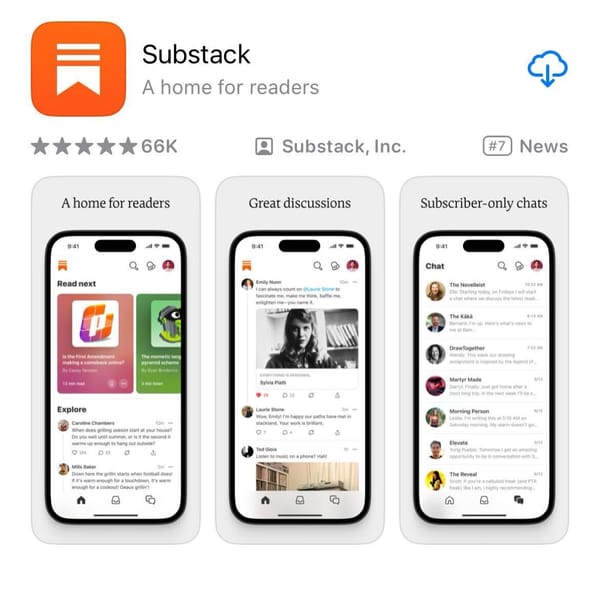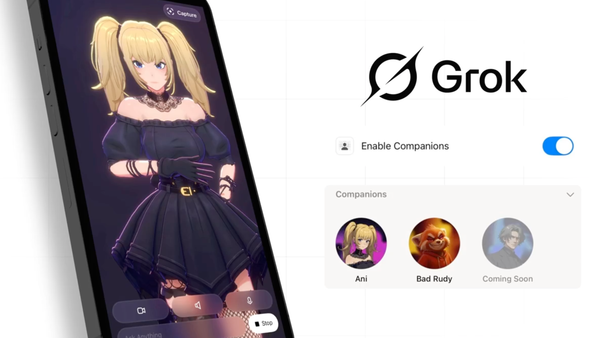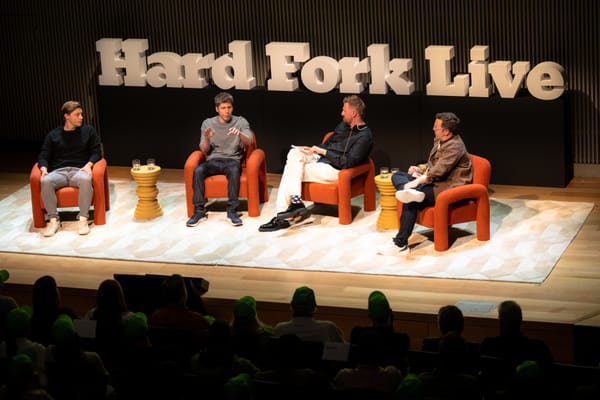Google shuffles the search deck
With a new Knowledge and Information chief and a new home for Gemini, can the company hit the reset button?

This week, a Hard Fork listener pointed me to a curious search result. Ask for the “difference between a sauce and a dressing,” he found, and Google would present you with one of its AI overviews. “The main difference between a sauce and a dressing is their purpose,” it stated. “Sauces add flavor and texture to dishes, while dressings are used to protect wounds.”
After I dug around a bit, I saw that people had been sharing this query on social media for a month, and that it had gone viral on X last week. It is not the most embarrassing AI overview I’ve seen — “dressing” is a perfectly acceptable word to call a bandage that protects a wound.
What sent the AI overview viral, I suspect, is the way Google’s large language model collapsed the various meanings of “dressing” into one. A photograph of “dressing” in the AI overview was clearly a salad dressing, and the description conflated the two. “A dressing should be large enough to completely cover the wound, with a safety margin of about 2.5 cm on all sides,” the AI overview stated. “A standard serving size for salad dressing is two tablespoons.”
By this afternoon, the issue had been fixed — all references to wounds had been removed from the search. It’s a minor mistake — no one was harmed in the making of this sauce — and yet it speaks to the issues that have dogged Google’s search and AI product teams all year. In May, the company told us that in the future Googling would do the Googling for us. But Google’s erratic output this year has left many of us reluctant to hand it the keys.
The company pulled image generation from Gemini for months after it was found to be creating racially diverse Nazis (while refusing to depict the Founding Fathers as white). The launch of AI overviews included now-famous suggestions for putting non-toxic glue on pizza to get it to stick to the dough, and eating one to three rocks per day (a bit of satire that Gemini had unwittingly picked up from The Onion).
Google has continued to print money, and reported in July that it had generated $64.62 billion in ad revenue in the previous quarter. But those profits are the result of a monopoly that the company has illegally maintained, a judge ruled in August, in the first of two major antitrust trials that may disrupt Google’s business. And analysts predict that the company’s share of search ad revenue will drop below 50 percent for the first time in more than 10 years next year.
For all these reasons, I’ve wondered if Google might seek to shake things up. And so I was interested to read today that it had.
Here’s Miles Kruppa in the Wall Street Journal:
Prabhakar Raghavan, the most senior Google executive overseeing its search engine and ads products, is leaving the role after a four-year tenure leading the company’s core moneymaking business.
Raghavan will be succeeded by Nick Fox, a longtime Google executive who has worked in the search organization. Raghavan will have a new role as Google’s chief technologist working with Chief Executive Sundar Pichai.
Meanwhile, Kruppa reports, the Gemini chatbot — Google’s answer to ChatGPT — will be cleaved from the company’s Knowledge & Information division and moved to Google DeepMind. And in the proud Google tradition of inexplicably redundant and strangely competitive product lines, the Google Assistant will be moved to the platform and devices team. (We’ll know Gemini is working when it powers the Assistant, and one of the two teams disappears.)
On one hand, we shouldn’t make too much of a corporate reshuffling. Google does reorgs on roughly the same cadence that other companies do office birthday parties. Moving Gemini to DeepMind was a move long expected internally, I’m told, as it advances an objective that began in earnest when the company merged Google Brain with DeepMind last year: bringing the company’s research and product divisions closer together, so that they can iterate more quickly.
Meanwhile, executives come and go. Four years leading Google’s core business would leave anyone longing for a job that comes with a prestigious title and no real responsibilities. Raghavan earned his sinecure as chief technologist with a tenure that, first and foremost, saw incredible performance from Google’s ad business. But it also included some better received experiments with AI, most notably the “smart reply” and “smart compose” features inside Gmail that Google shipped even before the transformer had been invented.
On the other hand, though, new leadership and new teams are exactly the sort of thing you expect to see when the going gets tough. The question is whether Fox, a 21-year veteran of the company, can reverse the perception of decline in the quality of search results. With Gemini and the Assistant now someone else’s problem, there’s reason to hope his division can bring some renewed focus to the task at hand.
And Google has shown it can do AI right, when it focuses. NotebookLM, which ingests user documents and spits out fantastically useful study guides, FAQs, timelines, and other materials, went viral after releasing a feature that turns PDFs into impressively engaging podcasts. It’s a classic, old-school Google project: started in the company’s rebooted labs division by a small team, and led not by competitive pressure but by curiosity about what users need.
By grounding its models in users’ uploaded documents, NotebookLM is far less likely to tell you to put a bandage on your salad than Google’s core product. And in an era when many AI products inspire a kind of nameless dread, NotebookLM has consistently inspired in me a sense of possibility.
Google knows it has something on its hands with NotebookLM — CEO Sundar Pichai mentioned it in the second sentence of his blog post today announcing the changes coming to search. The product is a reminder that this company has always been at its best when it is quietly, relentlessly useful. If the company hopes to break out of its malaise in search, it should reconnect to that spirit — the one that powered the company in its salad days.
Correction, 6:40 p.m.: This post originally said Google had reported $1 billion in net income for the first time in the previous quarter. In fact, it reported $1 billion in net income for its cloud services for the first time. I updated the post to reflect Google's ad revenue in the quarter.
Elsewhere in Google AI:
- Google DeepMind’s operating profit rose by 91 percent last year to about $175 million. (Jon Victor / The Information)
- An update to NotebookLM update lets users customize its podcasts, which it calls audio overviews. (Jagmeet Singh / TechCrunch)

Sponsored
Keep Your Private Data Off The Dark Web
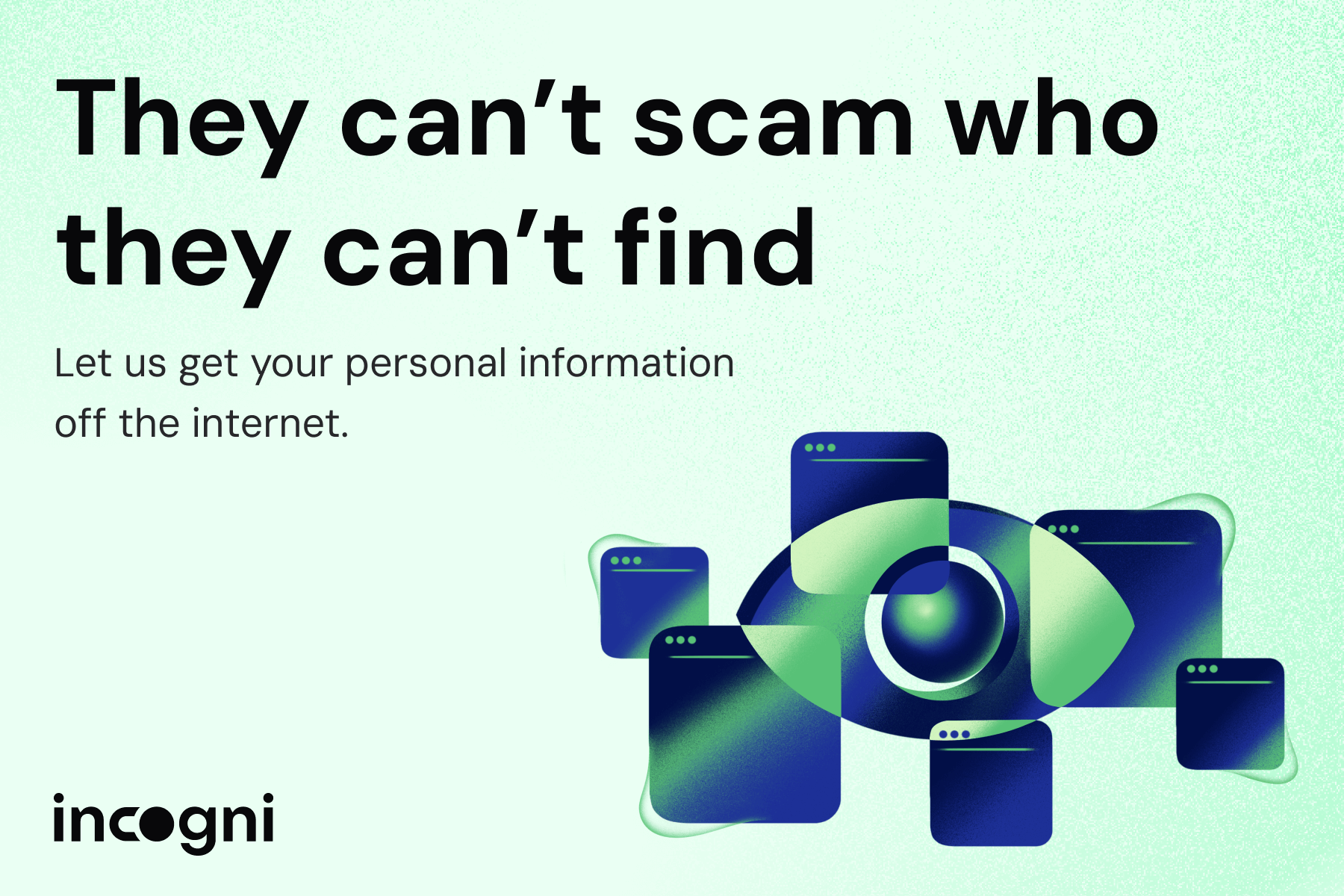
Odds are, you've received a suspicious phone call, text, or email asking for money in a roundabout way. If you have a trained eye, you may be able to spot the scammer, but their tricks are becoming more and more sophisticated. Every day, data brokers profit from your sensitive info—phone number, DOB, SSN—selling it to the highest bidder. How can you truly protect yourself when so much of our lives are online? That's where Incogni comes in. It scrubs your personal data from the web, confronting the world’s data brokers on your behalf. And unlike other services, Incogni helps remove your sensitive information from all broker types, including people search sites. Help protect yourself from identity theft, scams, and spam calls. Use code PLATFORMER today to get an exclusive 55% discount and get your data off 180+ data brokers and people search sites with Incogni.


On the podcast this week: Kevin and I discuss Anthropic CEO Dario Amodei's blog post on the potential arrival of superintelligence in 2026 and whether we are arriving at the AI endgame. Then, Uber CEO Dara Khosrowshahi joins us in the studio to discuss that notification that they send you saying "your driver is nearby" when they are actually still two miles away. (We also discussed autonomous vehicles and the company's partnership with Waymo.) And finally, after reading internal TikTok documents saying that the company determined that anyone could become addicted to the app by simply watching 260 videos, I gave it a shot.
Apple | Spotify | Stitcher | Amazon | Google | YouTube

Governing
- Elon Musk is officially one of Donald Trump’s top donors after putting $75 million in a super PAC. (Bill Allison and Dana Hull / Bloomberg)
- A federal judge overseeing a lawsuit by Musk against Media Matters – who has made decisions in favor of Musk – was buying and selling stock in Tesla in 2023, filings show. (Bobby Allyn / NPR)
- And X just updated its terms of service to say that any dispute you have with the company has to be resolved in his district! Imagine that! (Nate Raymond / Reuters)
- X also changed its privacy policy to note that it will allow third-party collaborators to train AI models on X data, unless users opt out. (Sarah Perez / TechCrunch)
- X will not be subject to the Digital Markets Act as the EU Commission decided the platform was not an important gateway for businesses to reach consumers. (Natasha Lomas / TechCrunch)
- Content moderation fines against X may be calculated including revenue from other Musk companies like SpaceX and Neuralink, the EU Commission said. On one hand, this is obviously ridiculous and an overreach by the EU. On the other hand, Musk treats all his companies as if they are one, routinely transferring resources from one to the other. So ...? (Gian Volpicelli and Samuel Stolton / Bloomberg)
- Musk won a fight against Indian billionaires Mukesh Ambani and Sunil Bharti Mittal over a possible space spectrum auction. Musk opposed one, and India’s communications minister said there was no plan for one. (Chris Kay / Financial Times)
- A look at Seth Keshel, a Trump supporter and election prognosticator who factors fictional voter fraud into his forecasts, winning him popularity on the right. (Stuart A. Thompson / New York Times)
- US intelligence officials are warning government agencies that there’s a “heightened risk” of violent attacks from right-wing election deniers. (Dell Cameron and Tess Owen / Wired)
- An AI-powered network of bots on X boosted pro-Republican and pro-Trump propaganda in a coordinated campaign, a new report found. (Kevin Collier / CNBC)
- Trump has not bought an ad on Snapchat despite his efforts to court younger voters, while Kamala Harris used the app to highlight his anti-abortion record. (Nicholas Nehamas and Shane Goldmacher / New York Times)
- Google will block election ads for an extended period after the polls close. (Ina Fried / Axios)
- Amazon Prime Video is streaming its first live news coverage on election night, “Election Night Live,” hosted by former MSNBC anchor Brian Williams. (Sara Fischer / Axios)
- Apple’s Tim Cook called Donald Trump to complain about the EU, Trump said, adding that he won’t let the EU “take advantage” of US companies if elected. (Emma Roth / The Verge)
- Google asked an appeals court for an emergency stay on the judge’s ruling in Epic v. Google that would require Google to distribute third-party app stores in the Play Store. (Jay Peters and Sean Hollister / The Verge)
- A look at how political content is suppressed on Instagram, Facebook and Threads, with simply including the word "vote" causing posts to get downranked. (Geoffrey A. Fowler / Washington Post)
- Instagram added new features to address sextortion scams, including the inability to screenshot messages that are “View Once” only and the blurring of nude images in DMs when detected. Glad to see platforms investing more attention in this issue. (Tatum Hunter and Naomi Nix / Washington Post)
- About 68 percent of US adults back a cell phone ban in middle and high schools during class, but only 36 percent back a ban for the whole day, a Pew survey found. (Monica Anderson, Jeffrey Gottfried and Eugenie Park / Pew Research Center)
- The FTC now has a final “click-to-cancel” rule that requires businesses to let customers use the same method to cancel a subscription as the one they used to sign up. Sadly this means I have had to change Platformer's old cancellation policy, which is that I would only do it if you could find and catch me in a corn maze of my choosing. (Emma Roth / The Verge)
- The U.S. National Archives and Records Administration is reportedly planning to launch an AI chatbot called “Archie AI” and introduce AI tools, despite concerns from employees about the use of Gemini AI. (Jason Koebler / 404 Media)
- Some AI models today, including ones by Anthropic, OpenAI and Meta, reportedly do not meet the standards of the EU’s AI Act in areas like cybersecurity and discriminatory output, a new tool found. (Martin Coulter / Reuters)
- A look inside the various stages of how a Russian disinformation campaign reaches the US. (Brandy Zadrosky / NBC News)
- A look at whether AI can help developing countries in Africa — or if it will instead widen the digital gap. (David Pilling / Financial Times)

Industry
- Meta conducted an unspecified number of layoffs affecting WhatsApp, Instagram and Reality Labs. (Alex Heath and Jay Peters / The Verge)
- The company also reportedly fired two dozen employees in Los Angeles for misusing their $25 daily meal credits to buy household items like wine glasses and laundry detergent. (Hannah Murphy and Stephen Morris / Financial Times)
- Instagram is testing a “Social Library” section meant for users to quickly access things shared in chats, collections, and liked posts. A smart evolution of social networks in a world where more sharing is done in group chats. (Sheena Vasani and Jay Peters / The Verge)
- Meta is “polluting” the term open-source by describing its Llama models as such when they are not truly open, the head of the Open Source Initiative, Stefano Maffulli, said. (Richard Waters / Financial Times)
- Meta published an update about its partnership with production company Blumhouse and other creators to get feedback on its forthcoming Movie Gen AI tool. (Meta)
- Mark Zuckerberg is becoming a watch influencer. I'll admit it ... I Googled his watch after Meta Connect. (Rya Jetha / San Francisco Standard)
- YouTube is labeling authentic videos that are “captured with a camera,” aligning with the C2PA standard. Good! (Umar Shakir / The Verge)
- Apple announced a series of tools for businesses to increase their visibility across Apple devices through its Business Connect service. (Sarah Perez / TechCrunch)
- Amazon’s new Kindle Paperwhite has a big 7-inch screen, is brighter, and its pages turn faster. (Sheena Vasani / The Verge)
- The new Kindle Scribe is the largest model, with an updated screen and stylus that make it feel more like a real paper notebook. (David Pierce / The Verge)
- The Kindle Colorsoft Signature Edition looks like the new Kindle Paperwhite, but with colors. (David Pierce / The Verge)
- The Kindle Oasis, the last Kindle with buttons, has been discontinued. Too bad. I liked it! (Jay Peters / The Verge)
- Netflix beat Wall Street expectations in third-quarter earnings, but posted slower subscriber growth after months cracking down on password and the introduction of ad-supported plans. (Lindsey Choo / Forbes)
- A look inside Automattic amid the ongoing war between CEO Matt Mullenwag and WP Engine over WordPress, which employees have reportedly described as full of fear and distrust. (Samantha Cole / 404 Media)
- ByteDance, which already publishes ebooks, is moving into print through its publisher 8th Note Press. (Alexandra Alter / New York Times)
- A look at Dippy, an AI startup, which says it offers “uncensored” AI companions. (Will Knight / Wired)

Those good posts
For more good posts every day, follow Casey’s Instagram stories.

(Link)

(Link)
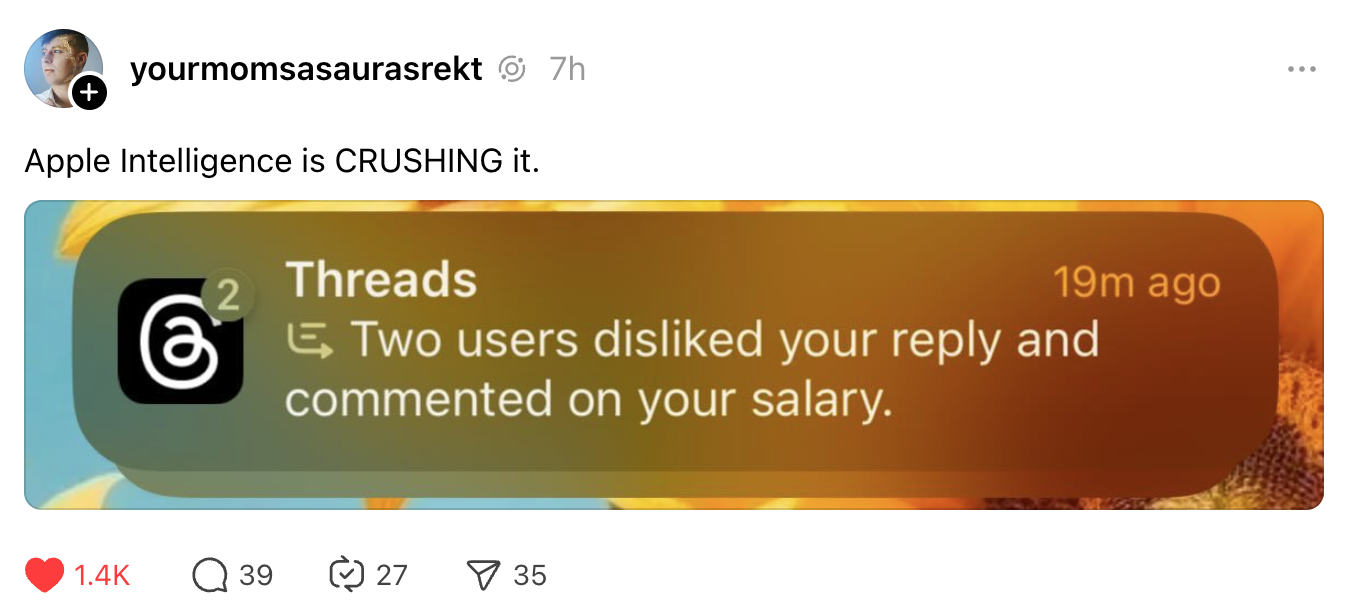
(Link)

Talk to us
Send us tips, comments, questions, and salad dressings: casey@platformer.news and zoe@platformer.news.


